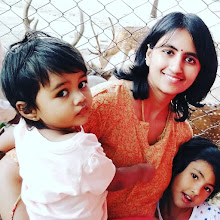What is too-much love?
When you feel secure and worthy of too-much love that you receive from your spouse, why do you feel that too much love may spoil your child?
Why is there even a term called too-much love?
Is love limited?
Is love conditional?
Is love limited to certain behaviour?
What is love?
Is love momentary?
Can't love build trust?
Can't love prove worth?
Can't love teach empathy?
Can't love teach responsibility?
Can't love show kindness?
When love can teach so many things and heal so many wounds, why is there a term too-much love in the context of a child?
Why is there a fear that too-much love may spoil the child?
Before you make statements and judgements on what the child is ought to receive from you: too-much love or conditioned-love, it is a good reminder to know what love is and what it actually means to respond to a crisis, in love.
Simple check that you could do is, imagine your spouse responding to you the way you do to your child. Do you feel good? Do you feel secure? If the answer is No, it is time to rethink the way you parent. Or, even better, imagine yourself in your child's situation and respond just as you would like your parent to respond to you.
We are all beings with attachment and bonding. Right from birth, all that the baby looks for is attachment and love. Children need love from us. You can read this post which talks about how we can Show some love in any situation.
There can be no life without love. You have to make efforts to understand this principle of love and make it a part of your life. Love always maintains the quality of fullness. It neither increases nor decreases. It is from the fullness of love that Divinity manifests. Where there is total love, God will manifest then and there. -Sathya Sai
Labels: ArtOfParenting, respectthechild










